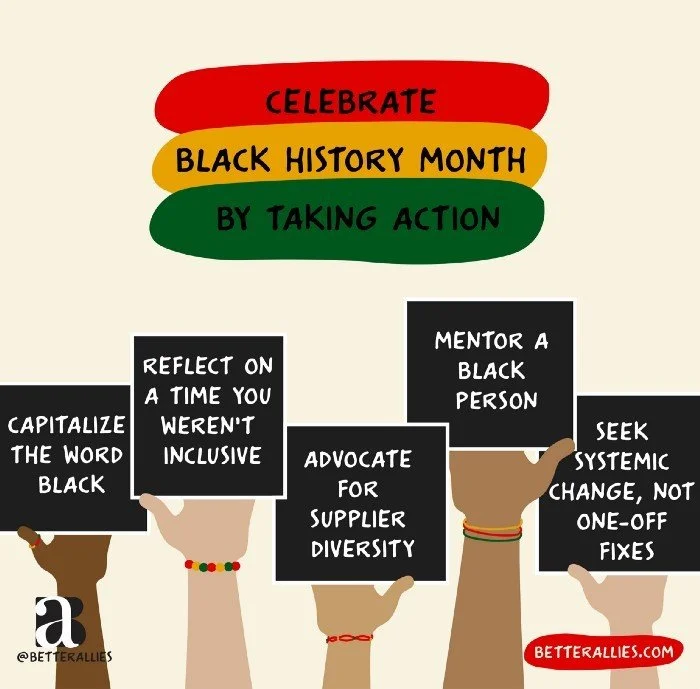Yes, Allies - You Can Honor Black History Month, But You Still Have to Do The Work
When my now 20 year old daughter was 4 and attending a Pre-K/K program I was inspired to write an article about her excitement learning that she was part African American during Black History Month. In 2015, after the shooting in Ferguson, I reposted that article from my old blog on Medium, with some more current reflections in honor of Black History Month. In the years that have passed, I have thought many times about taking it down, in fact I absolutely cringe every single time I read it. So why don’t I?
I don’t remove the article because it SHOULD be cringe worthy, in the same way that a few years ago none of us cringed when we saw industry panels with only men, or only white people. Cringe inducing moments are at the apex of change. So bring it on: without my occasional re-read of that article, I might not be as vigilant as I should in interrogating myself about what I might be doing to contribute to implicit bias and systemic racism.
Warning: this sort of self-reflection isn’t pretty but it is progress. Here are some tough lessons I learned about myself since I wrote that article:
You can have black children, by blood or by the bond of adoption, but that does not mean you have even a sliver of understanding about the black experience in America. Even living that experience through your children by proxy is not the same. You are also not the best person to teach your child about that piece of their heritage, that is an oral history that must be passed from the mouths of those who own the stories.
You should not be embarrassed if you are thankful your children “pass” as white because you don’t want them to experience the pain of racism. You should however, be deeply ashamed that we live in a country where ANY child has to pass for anything other than exactly who they are — unique, special and equal or that ANY child will experience pain or violence because of the color of their skin- but shame gets us nowhere unless it sparks action.
Even if you grew up poor, if you grew up poor and white, you still had a better experience and likely many more opportunities than if you grew up as a poor person of color.
When you are in a room with only white people, and someone makes a joke or racist comment feeling safe in a room of only white people to do so (and believe me they will) you don’t get to stay quiet.
You don’t get to judge, rationalize, debate the merit of, or co-opt movements and hashtags that are not your own.
It is very humbling to discover through time and experience lessons like these. At the same time, I am also learning lessons about what I should be doing instead - like stop assuming, and start listening. After that, amplify voices of people of color. After that, create space for people of color to tell their stories in first person.
We can, and should, link arms in protest against injustice when we see it- but we should also act where we work and where we live. Not accepting the status quo of disparities for people of color in healthcare and working to eliminate bias in data is where I am showing up today. I am grateful that I get to continue to grow and learn as a human. Thank you to my colleagues, friends, and mentors of color for meeting me where I am and inspiring me to do the work.

